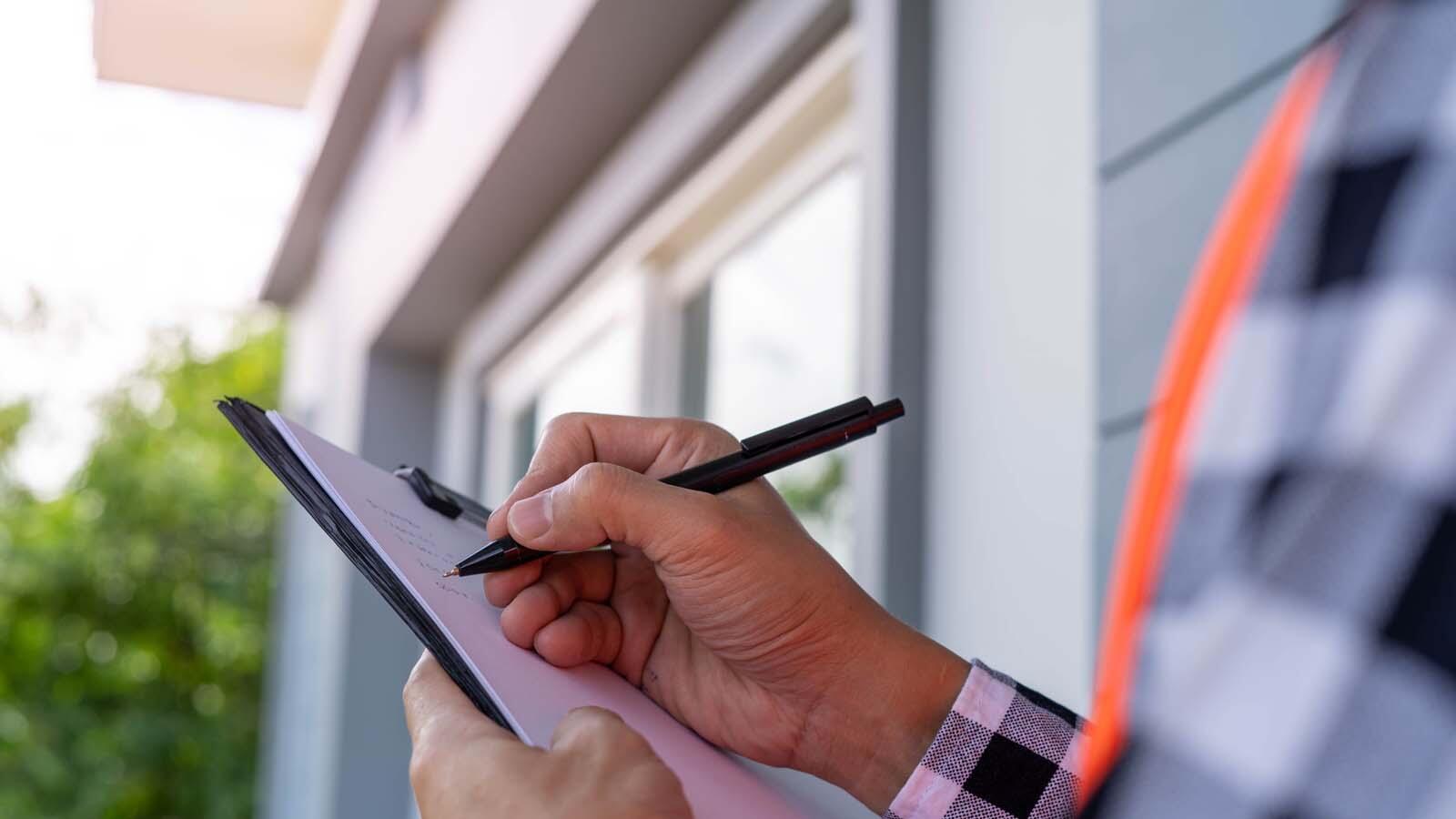Tampa Bay New Home Finders
Good to Know

Buying a home can be intimidating, especially if you don’t know much about operating systems and what else to look for. HVAC, electrical, gas and plumbing systems, appliances, pests, mold, radon and other areas can cost big money to repair, replace or remediate. Will one inspection cover all of that or will you need separate inspections? Will everything be in working order when you buy the home and move in? Or, will you be blindsided by an expensive problem after closing?
To ease your uncertainties, you can hire a licensed home inspector to inspect the home you’ve put under contract and provide you with a report of the home’s condition. According to Freddie Mac, a home inspector’s job is to protect your investment – before you buy the home. Their job is to inform you about any problems that may not be obvious as you walk through the home, but that could cost you big money later on.
According to PropertyNest.com, a home inspection can cost between $200 and $1,000, depending on where you live, but it can save you many times if it uncovers conditions that need attention. A home inspection is basically an examination of the integrity and condition of the home you’re buying, including all systems and fixtures. It should take between two and four hours and be thorough enough for all built-in appliances, all mechanical, electrical, gas and plumbing systems, ventilation and air quality, flooring, fireplaces and chimneys, the roof, foundation, gutters, interior and exterior skins (drywall, plaster, siding, brick, wood trims,) windows and doors to be reviewed. The inspection should include the following areas:
- Foundation and basement
- Any additional structural components
- Interior plumbing systems
- Interior electrical systems
- Heating and cooling systems
- Condition of windows, doors, and door frames
- Condition of floors, walls, ceilings, stairs
- The attic and any visible insulation
- Major appliances
- Trees around the property (if applicable)
- Examination of the exterior of the building/house
However, don’t expect inspectors to move furniture to test outlets or go on top of exceptionally tall or pitched roofs. They don’t give estimates for repairs or replacements, but they can point out that an air conditioner, for example, is near the end of its useful life. Then it’s up to you to find out what the replacement cost of an AC would be and whether you feel it’s up to you or the seller to replace it.
Real estate transactions often hinge on the competence of the home inspector involved in the sale. For that reason, it’s recommended that you choose a licensed home inspector who is a member of an accredited trade organization such as the American Society of Home Inspectors (ASHI) or International Association of Certified Home Inspectors (NACHI). Both organizations require that members meet strict membership criteria including training, adherence to standards of practice and code of ethics, and continuing education. Each offers certifications through which consumers can determine inspectors’ experience and dedication to quality services.
It’s also your job to find out what the inspection will cover. The responsibilities of home inspectors vary according to state law and their areas of expertise. Be aware that home inspections only cover the main house, but you can pay extra to have the inspector include other buildings on the property. Specialty inspections such as termites should cover all buildings on the property including guest houses, detached garages, storage buildings, etc., but, again, you must ask that they be included. Some inspection companies have extensive divisions that can provide environmental inspections for radon and lead paint. Be prepared to hire and schedule several inspectors according to your lender’s requirements and to pay several hundred dollars for each type of inspection.
You should attend all inspections and follow along with the inspectors. Seeing problems for yourself will help you understand what’s serious, what needs replacement now or later, and what’s not important. The inspector will also tell you what needs to be a concern, if any. You’ll also learn if your future home is up to current building codes and what needs to be done to bring it up to code.
While home inspections aren’t mandatory, they could be required by your lender if you’re getting a government-guaranteed mortgage loan through the Federal Housing Administration (FHA.) WoodGroupMortgage.com explains that FHA Loans must have an inspection for safety, soundness, and security as well as an appraisal of value. They have a checklist that includes:
- No damage to the foundation, roof, or exterior
- Safe access to the premises
- Working utilities
- No exposed wiring or other electrical systems
- A permanent heating system that provides sufficient heat for the home
- No peeling or chipping lead-based paint
- Access to clean water
- No termites or other wood-destroying insects
- Access to, and ventilation in, attics and crawlspaces
- No soil contaminants, such as from a damaged underground storage container
- No safety hazards, such as stairs without handrails
- Compliance with local zoning regulations
VA and USDA loans don’t require a home inspection, but the home must meet a list of Minimum Property Requirements. This is determined by an appraisal, which may be confusing, but not when you think of it in terms of determining fair market value. A home that has obvious defects isn’t going to compare well with other similar homes, and that could increase the likelihood of default if a buyer were to find themselves “upside down” with a home that’s worth less than its neighbors. In case of a problem, the appraiser will notify the buyer and seller, but it’s incumbent upon the seller to fix the issue or the home will not be able to be purchased with a government-backed loan. The seller must then declare in a sellers’ disclosure what was an issue and how it was fixed.
When you make a purchase offer on a home, you have the right to make the transaction contingent on the outcome of the inspection. You typically have up to 10 days to schedule an inspection, and then have up to three days or whatever is customary for your area to back out of the purchase contract or to ask the seller to complete certain repairs or replacements.
Once the inspections are complete, you have to decide if any problems found are worth renegotiating with the seller. This is where you want to carefully pick your battles. Negotiate only for repair or replacement of items that are unsafe or expensive to replace. Realtor.com advises homebuyers to check their local ordinances to know which issues found during an inspection legally fall in the seller’s realm of responsibility.
Most sellers will cooperate with needed repairs that affect the safety of those living in the home. In fact, many sellers opt to have inspections before they put their homes on the market so they can eliminate issues that could later jeopardize the sale of their homes. A seller’s inspection is a great marketing tool to put homebuyers at ease and to put the seller in a better position to get their asking price. Some repairs may have to be disclosed to the buyer, but at least last-minute negotiations or contract collapses can be avoided.
East Pasco Living Team
We are a collaborative team with a vision to put our years of experience working and living in East Pasco to work for you! We strive to build long-term relationships and give you the individualized attention you deserve. Let us put our combined decades of experience to work for you.
Carla Goddard | East Pasco Living Team Lead
Graduate, REALTOR® Institute | Residential Specialist | BHHS-Certified New Home Specialist | Certified National Home Specialist – Residential Construction Certified (CNHS-RCC) | NHCB Certified New Homes Co-Broker |BHHS-Certified eCertified® Specialist | BHHS-Certified rCertifiedSM Referral and Relocation Specialist | Tampa Bay Builder Services Manager
Berkshire Hathaway Home Services
📧email: carla@eastpascoliving.com
📲text/call 813.716.4498
Article by BHH Affiliates, LLC used with permission © 2022 BHH Affiliates, LLC.
Real Estate Brokerage Services are offered through the network member franchisees of BHH Affiliates, LLC. Most franchisees are independently owned and operated. Berkshire Hathaway HomeServices and the Berkshire Hathaway HomeServices symbol are registered marks of Columbia Insurance Company, a Berkshire Hathaway affiliate.
If you are considering purchasing a new construction home and would like to ask questions, schedule a discovery call today with one of us or our designated New Home Specialists.
Carla Goddard | East Pasco Living Team Lead | Operations Director Builder Services
Graduate, REALTOR® Institute | Residential Specialist | BHHS-Certified New Home Specialist | Certified National Home Specialist – Residential Construction Certified (CNHS-RCC) | NHCB Certified New Homes Co-Broker |BHHS-Certified eCertified® Specialist | BHHS-Certified rCertifiedSM Referral and Relocation Specialist | Tampa Bay Builder Services Manager
📧email: carla@eastpascoliving.com
📲text/call 813.716.4498
Follow us




